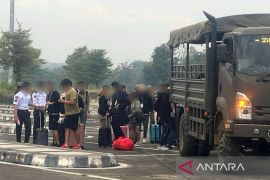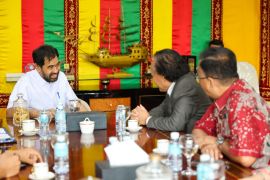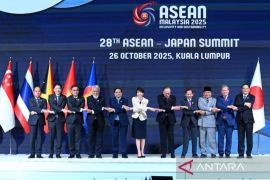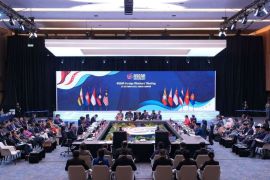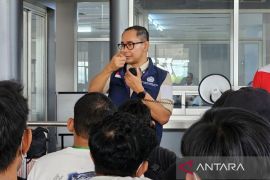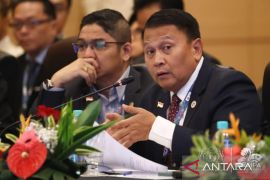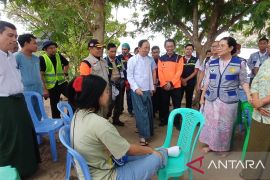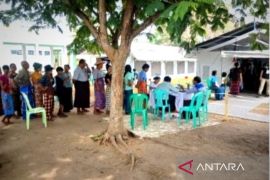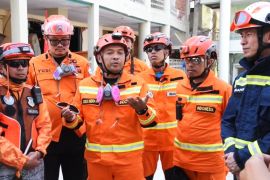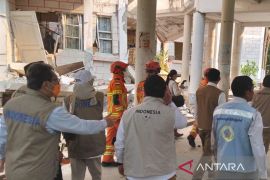In its most significant mass political prisoner amnesty since taking power last year, Myanmar`s nominally civilian government on Friday released about 300 activists, some of whom have spent almost 20 years in jail.
The long stretches behind bars have not shaken the activists` conviction that liberty is a right, and democracy a necessity.
And they believe it is too soon to say that the recent glimmers of hope are the start of a genuine democratic dawn.
"We are keeping our fingers crossed. There is so much to be done," said Shan ethnic minority leader Khun Htun Oo, sitting in an armchair at the French embassy in Yangon where he met visiting French Foreign Minister Alain Juppe.
"You see, I`ve seen lots of ambassadors and ministers nine years ago," the 68-year-old said, referring to another period of freedom. "I met some presidents also."
Prosecuted on five charges including defamation of the State, he has little respect for the Myanmar judiciary.
"About one month ago, my sentence was reduced from 93 years to 30. After, I was called out and (they) said `You are free, you can go`. What kind of judiciary is that?"
As for his view on President Thein Sein, a former junta premier who shed his uniform to contest a controversial November 2010 election, he said: "The question of trust does not arise. We are just taking facts, watching."
Former student activist Ko Ko Gyi, a key figure in the "88 Generation Students Group" which was at the vanguard of a 1988 uprising in which thousands died, is also sceptical that genuine democratic change is under way.
Arrested after the 1988 protests, released in 2005 and later locked up again, he has spent almost 20 years in prison and describes recent developments in his nation as offering only "a hint of change".
It is not clear how many more political prisoners are still behind bars, but a government minister said Saturday that 128 prisoners could not be released for security reasons because they had committed serious crimes.
Some activists say about 1,000 political prisoners remain locked up.
Ko Ko Gyi was glad to learn of the August 2011 meeting between Thein Sein and opposition leader Aung San Suu Kyi from his cell, but was frustrated not to know what was discussed because of the regime`s stranglehold on the press.
The talks were "a good sign", said Ko Ko Gyi, but he does not yet share the same confidence as Suu Kyi in the president`s desire to bring about change.
"I want to believe him but I need to wait and see what he is going to accomplish," he said, noting that Thein Sein was a close aide of the Myanmar`s former military ruler.
"Maybe he (Thein Sein) is a good man, but he was a very obedient guy under the Senior General Than Shwe," Ko Ko Gyi said.
Before long, the weary dissidents took their leave.
Elsewhere, newly freed prisoners were swept up in crowds of supporters.
It was hours before former student protest leader Min Ko Naing was reunited with his family, after crowds met him on his release.
Min Ko Naing has spent most of his time since 1988 in detention and was given 65 years in prison for his role in a 2007 monk-led uprising.
But on Friday he found himself on an improvised stage in northern Yangon, as if at a political rally.
"It is certain that we, the 88 group, will stand alongside the people of Burma just as we did before," he said, according to the Irrawaddy news website, run by Burmese exiles.
"We will reflect the people`s voices and desires, and work on their behalf," added Min Ko Naing, who was put on trial along with 34 other student leaders.
Another was Htay Kywe, who was also sentenced to 65 years in prison.
After arriving at Yangon airport from northwest Rakhine State, where he was imprisoned, he was greeted by jubilant supporters.
Decorated with garlands of flowers around his neck, he vowed: "We will continue working for democracy."
AFP
Editor: Jafar M Sidik
Copyright © ANTARA 2012
